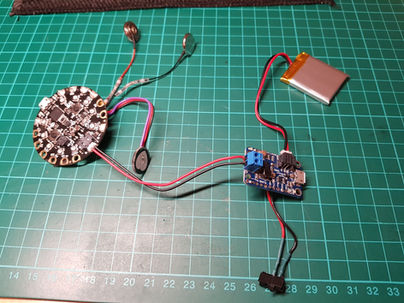

Teaching & Research
My approach to teaching and learning is that it is fun, interactive, inclusive and inspiring. It is focused on interactive workshops, teamwork and applied, practical learning, e.g., applying design thinking to real world projects developed collaboratively with community organisations or businesses.
My approach to teaching and learning is also inspired by the movement around decolonising the curriculum. I pursue different ways of addressing and transforming the imbalance of content being taught from a Eurocentric perspective. I seek to democratise the curriculum by adopting a more pluralistic perspective and encourage different ways of research and creative practice.
Teaching
Prototyping Present and Futures
Research
In my research, I am primarily interested in responsible design and innovation, sustainable development and especially in the ethics of Artificial Intelligence (AI). I explore the role of the dynamic and evolving nature of human interactions with such systems, e.g., augmented, or automated interaction. I consider how to design human-centred AI applications, especially in high risk, safety critical applications, and how to build and support credibility in these systems.
PhD Thesis: The Ethics of Emotion Recognition Technologies
Drawing on critical and speculative design practices, I used a research-through design approach to examine the production and use of emotion recognition technology as an example of an AI system with a potentially profound impact on people and society. I designed a wearable emotion recognition device as a prompt for critical discussion with participants in the study to examine how these technologies may alter existing human practices around emotions. The thesis developed a human-centered method to prototype ethical, human-AI interactions, for example by simulating autonomous behaviour.















